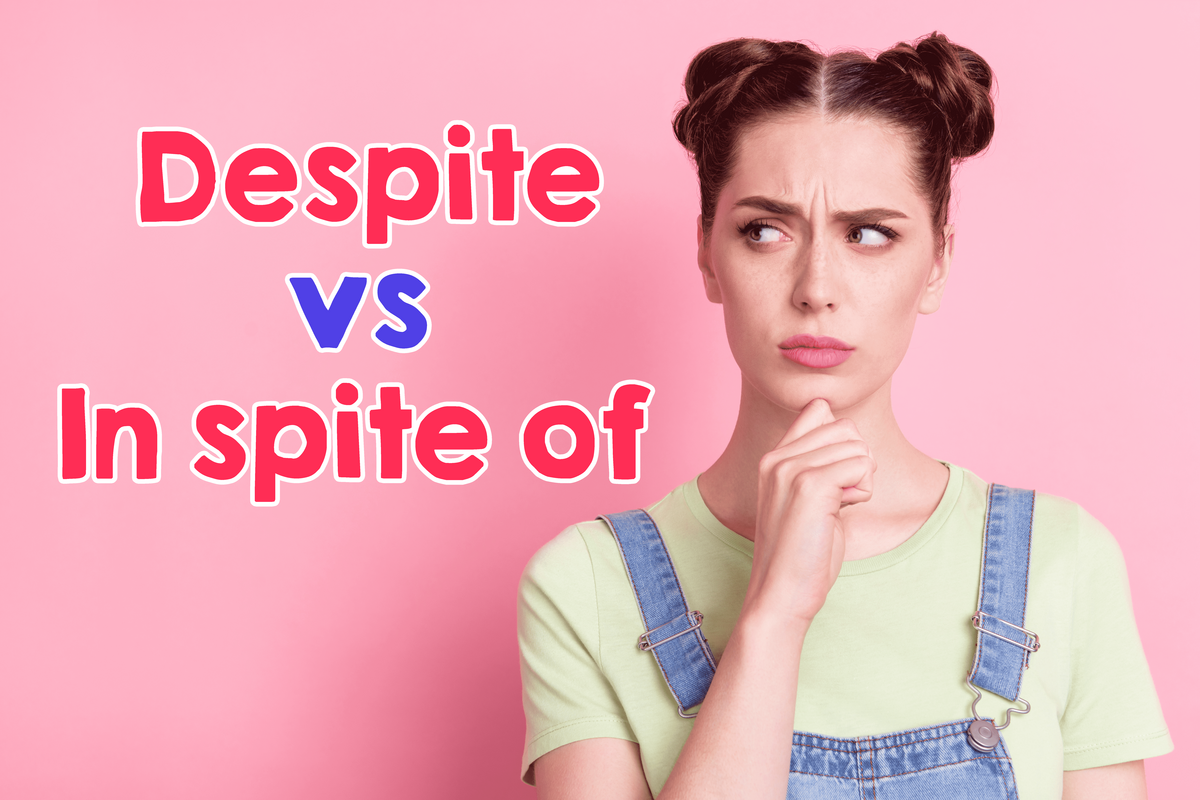「例如」用英語怎麼說?當被問到時,大多數人首先想到的是「For example」。
不過在舉例時,還可以使用其他英語來表達,而且母語人士會根據自己感受的細微差別和變化,使用不同用法。
下面我們就來說明如何使用吧!
目次
例如的英語表達1:用於口語
・For example/ As an example
・For instance
以上表達可用於日常對話,也可以用於正式場合,比如商務場合。
For example和For instance可以用來表示同一件事,不過它們的用法存在細微的差異。
「For example」的後面,是相對於之前所描述的內容,用於典型的複數舉例。
另一方面,在「For instance」的後面,是舉例事實、事件來作為證據。
這些短語都可以用在句首、句中和句尾。
造句時
句首 – For example的後面,comma(逗號)
句中 – For example的前後,comma(逗號)
For example
In a Taiwan convenience store, you can buy anything. For example, groceries, sweets, magazines, basic clothes, and stationery items.
在台灣的便利商店什麼都買得到。比如雜貨、糖果、雜誌、一般衣物、文具等等。
In a Taiwan convenience store, you can buy anything; groceries, sweets, magazines, basic clothes, and stationery items.
在台灣的便利商店,你可以買到任何東西:雜貨、糖果、雜誌、一般衣物和文具。
As an example
Here is my resume, as an example.
比如說,這是我的簡歷。
He is one of the great cooking experts. As an example of his skills, he can make a terrific Chinese dish.
他是優秀的烹飪專家之一。例如,他能做一道很棒的中國菜。
For instance
For instance, reusable straws can reduce the amount of plastic you throw away each day.
例如,可重複使用的吸管能減少每天丟棄的塑膠量。
對話例句
Vivian : We need to discuss our family’s 2019 resolution more realistically.
Tom : Sure, we can do that.
Vivian : I think we need to change our eating habits to save up enough money to buy a house.
Tom : For instance?
Vivian : We should only go out once a month and bring our own lunch to work.
【譯】
Vivian : 我認為我們應該更現實地談論我們 2019 年的家庭決議。
Tom : 是啊,我們談談吧。
Vivian : 我認為也許我們應該改變飲食習慣,好存錢買房子。
Tom : 比如說?
Vivian :我們應該每個月只外出用餐一次,並從家裡帶午餐去上班。
例如的英語表達2:當您想說「假如…」時
Let’s say/ Say
動詞「Say」的意思即是「假如/如果」。
(無論有沒有 Let’s,都可以具有相同的含義。)
Let’s say you have only one thing you can bring to a deserted island, what would you choose?
假設只能帶一件東西去荒島,你會選什麼?
There is nothing you can’t buy in an AWQ department store.
Say you want to buy some food, you go to B1. Say you want to buy a toy, you go to 6F.
Say you want to buy a dog, you go to 7F. Isn’t that amazing?
在 AWQ 百貨公司沒有買不到的東西。
比如你想買一些食物,就去B1。
如果你想買玩具,就去 6F。
如果想買狗,就去7F。是不是很神奇呢?
Let’s suppose/ Suppose
這裡同樣也可以省略Let’s。
Our boss is so strict when it comes to making grammar mistakes. Let’s suppose you are writing an email to your boss, you better triple check it before you send it.
我們的老闆對文法錯誤非常嚴格,假如你正在寫信給老闆,最好在發送之前仔細檢查一下。
※When it comes to(名詞/名詞句/動名詞)~
「當談到~」
What if?
What if you won a lottery for 1 million dollars, what would you do?
如果你中了100萬美元的彩票,你會怎麼做?
【對話例句】
Risa : I’ll tell him that we’re over because he seems to be cheating on me.
Maria : Wait, are you sure about that? What if you are wrong?
【譯】
Risa : 我會告訴他我們的關係已經結束了,因為他似乎在欺騙我。
Maria :等等,你確定嗎?會不會是一場誤會?
例如的英語表達3:當您想說「像是…」時
Like
「就像是~」
這是母語人士經常使用的一種隨意口語表達。可以將該詞用作For example的休閒版本。
如果用在疑問句中,「Like?」就變成「像是?」,當您想詢問對方某事時,用起來非常方便。
但這不能用於正式場合,所以請特別注意。
I’m craving for something sweet like chocolates.
我渴望吃一些甜的東西,像是巧克力。
*※crave 是強烈渴望某件事。這是比「Want」更強烈的表達。
【對話例句】
Anne : I want to do something fun this weekend.
Jenny : Like?
Anne : You know, like going to a festival.
【譯】
Anne : 這個週末我想做點有趣的事。
Jenny : 像是什麼?
Anne : 你知道,就像去參加節慶一樣。
▲除了這種會話用法之外,很多人也會用「like」作為連接句子的習慣。例如,加州人以高喊口號而聞名。不過要記住的一件事是,如果您使用太多,別人會認為您沒有受過教育,或者聽起來有點傻,所以每個人都需要小心(笑)
有時當您找不到合適的單字,可能會使用「like」,但是,我們建議您不要因為母語人士重複說這些單字而模仿。
I went to a restaurant the other day. The server was LIKEso rude to me.
LIKEyou can totally tell that she was LIKE looking down on me from the way she talked to me.
Uh, LIKE I’m the customer! Being nice to a customer is LIKE so basic. LIKEI can’t believe that happened to me.
「有一天我去了一家餐館,服務員有點粗魯。可以說,從她說話的方式,就能知道她看不起我。恩,我可是客人!對客人有禮貌不是最基本的事情嗎?我真不敢相信這件事發生在我身上。」
↑在對話中總是在句子之間帶入「LIKE」,這會給人一種不聰明的印象(笑)
就像重複中文裡的,好像~像是~一樣。
模仿母語人士的英文很重要,但有能力辨別該如何模仿,也是很重要的。
Such as
「像~/例如」
這個片語跟Like或for example同樣,可以在舉例時使用。
也可以像 Like作為舉例。
用於休閒和正式場合都可行。
另外,such as 的後面通常跟名詞或動名詞。
There are many countries where you can study abroad to learn English, such as the UK, Canada, the US, or Australia.
可以出國留學學習英語的國家有很多,例如英國、加拿大、美國或澳洲。
【對話例句】
Mari : He is such a picky eater. I can’t stand it.
Ai : Such as?
Mari : He doesn’t like tomato, cabbage, onion, shrimp or chicken. I don’t know what to cook for him.
【譯】
Mari : 他太挑食了,我受不了。
Ai : 像是?
Mari : 像是番茄、高麗菜、洋蔥、蝦子或雞肉,我不知道該給他做什麼。
例如的英語表達4:用於書寫
ex.
這是example的縮寫。
有時會寫成Ex,但它們是一樣的意思。
母語人士也會使用它,但一般來說,使用率低於稍後將介紹的兩個表達。
*在英語系國家的課堂或教科書中,exercise意思是「習題」。
▲順帶一提,這不是書面用詞,而是母語人士經常使用的俚語,但如果您不使用Ex.中的句號,可以用它來表示former something。
ex-boyfriend /ex-girlfriend /ex-wife/ex-husband
前男友/前女友/前妻/前夫
這字讀作(X)。
My ex這句也是可行的。
e.g.
劍橋英語字典指出:
exempli gratia:
a Latin phrase that means “for example”. It can be pronounced as “e.g.” or “for example
換句話說,它不是英語單詞,而是拉丁語exempli gratia- for the sake of example的縮寫。
母語人士常用它來代表「例子」。
從論文、雜誌或部落格,都被廣泛使用,請好好記住這個字,它非常方便。
它與「for example」含義相同,用於詳細說明之前所述的內容。在口語中,可以用來代替such as。
I play all kinds of sports, e.g., soccer, basketball, and tennis.
我參加各種運動,例如足球、籃球和網球。
I have too much stuff, e.g., bags, clothes, and shoes.
我有太多的東西,例如包包、衣服和鞋子。
i.e.
這也是拉丁語中 id est 的縮寫,跟that is (to say)「也就是」或in other words「換句話說」,是一樣的意思。
劍橋英語字典指出:
used especially in writing before a piece of information that makes the meaning of something clearer or shows its true meaning.
也就是說,它是用來補充先前的陳述或觀點,使其更加清晰。
I like living in a big city, i.e., New York.
我喜歡住在大城市,也就是紐約。
Our relationship didn’t work out. (i.e., He dumped me)
我們的關係沒有成功(換句話說,他拋棄了我)。
I am a vegan, i.e., I do not eat any animal-based products.
我是素食主義者,也就是說我不吃任何動物性產品。
e.g. 和 i.e. 之間雖有區別,但根據母語人士的說法,並沒有特別的差異,用法也相同。
雖然就像《劍橋詞典》中所解釋的那樣,但兩者都是「類比互補」,並且在許多情況下可以互換使用。
當您「想聽假設」時可以使用的問句範例
・Could you give me an example?
・Could you be a little bit more specific?
To give( you ) an example
給(你)一個例子
To give an example, between 1995 and 2000, the internet became huge in Taiwan.
舉個例子,1995 年至 2000 年間,網路在台灣變得相當龐大。
Let me give you an example.
/ I’ll give you an example.
讓我舉個例子給你。
/ 我舉個例子給你聽。
Let me give you an example of what that means.
讓我舉個例子來說明這代表什麼。
例如的英文表達有很多!請實際使用看看
最後,我們還有一個問題!
以下的( )裡應該是 i.e. 或 e.g. 哪一個呢?另外,它是指for example「例如」,還是說明內容的That is「つまり」的書寫形?
I do not like eating raw fish, ( ), sushi.
I don’t like Taiwanese food, ( ), sticky tofu or oolong tea.
-答-
I do not like eating raw fish, (i.e.), sushi.
i.e. 是用於That is 「也就是說」的意思,補充之前所述的內容。
I don’t like Taiwanese food, (e.g.), sticky tofu or oolong tea.
e.g.是用於for example的意思,舉例介紹。
您是否驚訝地發現,表達For example有各式各樣的英文短語。
請參考本文,不用試圖一次記住所有內容,而是一步一步學習,以增加您的基本表達數量,並在日常對話中使用!
對於外國人來說,學習第二語言很困難,不是只有英語。如果您循序漸進的學習,一定會進步的!
在Native Camp線上課程(目前提供7天免費試用!),向老師表達意見時,您可能需要解釋一下,或者當您想舉例說明自己的經驗時,會有很多時候想表達「例如~」。
如果您總是陷入相同的對話模式,那麼嘗試不同的短語是個好主意!請務必收藏本文,多多閱讀喔!



















